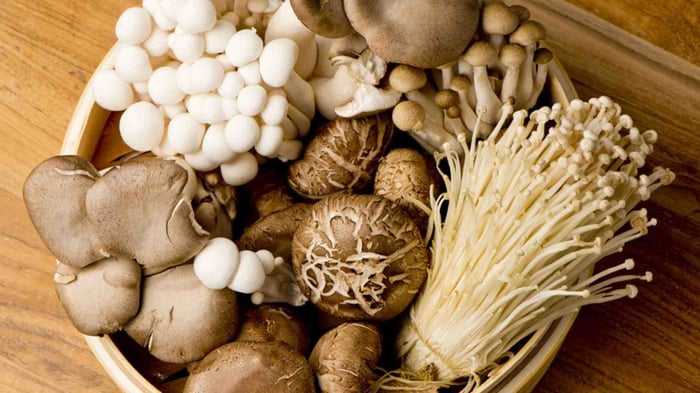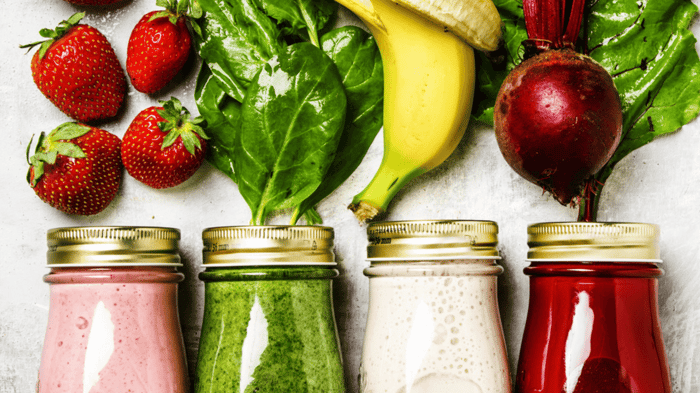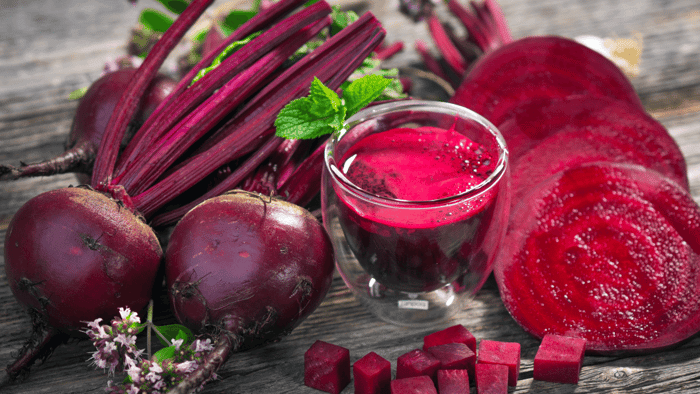
Did you know food can cause anxiety? It’s true – and you probably eat anxiety-inducing food daily without knowing. Through my research and knowledge of how food affects the body, I have found that food can severely affect our mental health and be an underlying cause of anxiety, depression, and even suicidal thoughts.
What are Neurotoxic Foods?

When it comes to mental health, foods fall into two categories:
- Anxiolytic foods (reduce anxiety)
- Anxiogenic foods (cause anxiety)
Anxiogenic foods are neurotoxic are poisons that have been proven to wreak havoc on the body, causing everything from gut imbalance to nervous system damage and inflammation. Overexposure to neurotoxins causes neurotoxicity, which can lead to damage to the brain and peripheral nervous system, including disruption of nerve function or nerve death.
These foods add stress to the body, and it’s time we let them go.
There are several reasons the foods I highlight below are detrimental to our mental health. Here are a few:
- Oxidative stress and inflammation. The brain is especially vulnerable to free radicals because its functions are more oriented to fats than antioxidant resources.
- Endocrine disruptors. The endocrine system is the system of glands that produce hormones, which regulate mood and sleep, among other things. Disrupting the endocrine system creates hormonal imbalances that contribute to anxiety.
- Weakens immune system. In this state, our energy is low and our susceptibility to infectious diseases is raised. Emotionally, being unwell is unsettling
- Neurotoxins. They are destructive to brain cells and nerves. Neurotoxins affect function in both developing and mature brains and bodies and include both human-made and natural substances—everything from pesticides and industrial solvents to ethanol (drinking alcohol), botulinum toxin (Botox), lead, mercury, and manganese.
Food poisoning can result from biological compounds such as tetrodotoxin and domoic acid from contaminated mussels and other shellfish, or monosodium glutamate, a common additive to bump up the flavor in snack foods.
Neurotoxins are all around us, but they are especially common in popular processed and prepared foods. The following are foods we should avoid as much as possible to help protect our mental health and reduce symptoms such as anxiety and depression.
Top Neurotoxic Foods
Some foods are more neurotoxic than others and are the first ones you should eliminate from your diet.
Refined Sugar

The top food that causes anxiety is refined sugar, which includes white table sugar, brown sugar, corn syrup, sucrose, fructose, and high-fructose corn syrup. When you have low levels of serotonin in the brain, you crave sugar.
While you may feel good during your five-minute sugar high, you quickly experience a crash, which can be accompanied by anxiety. There is an incredible amount of data showing how refined sugar deteriorates our health, including our mental health.
One study found that consumption of added refined sugars, particularly high-fructose corn syrup and sucrose, negatively impacts your metabolism and the function of your hippocampus, and even causes neuroinflammation.
Bad Fats

There are good fats and there are bad fats. It’s easiest to remember that almost all the foods that come straight from nature contain the good fats we need, foods like avocado, walnuts, and chia seeds, among others.
Bad fats are mostly human-made, including those you find in fried food, fast food, and hydrogenated oils (trans fats). According to many studies, people who eat fast foods like hamburgers, hot dogs, pizza, and baked goods are more likely to develop depression—in fact, they are more than 51 percent more likely to do so, according to a 2012 study in the journal Public Health Nutrition.
Yes, I still want to enjoy French fries for the rest of my life, but I try to avoid fast-food joints that cook them in low-quality, toxic oils. I seek out higher-quality foods or make them myself at home. When I fill myself up on good fats, such as coconut oil, avocado, wild-caught salmon, grass-fed beef, olive oil, and more, I don’t crave the bad fats.
Toxic Chemicals Hidden as “Ingredients” in Food

Did you know that particular chemicals have been banned—for good reason—as food ingredients in many countries, yet the United States allows these same chemicals to be used in common foods we might eat every single day? They are banned in other countries because they are linked to countless health issues, including mental health issues and cancer. But in the U.S. they remain in food because people continue to buy them and aren’t speaking up about them. Nonetheless, the following should be avoided:
- Blue 1, Blue 2, Yellow 5, and Yellow 6: coloring agents found in anything fluorescent, like brightly colored candy, juices, cereal, and sauces
- Olestra (Olean): fat substitute found in some potato chips, French fries, corn chips, and other crunchy snack foods
- Potassium bromate (brominated flour): found in baked goods made with conventional white flour
- Azodicarbonamide (ADC): a bleaching agent found in baked goods made with conventional white flour
- Brominated vegetable oil (BVO): found in sodas and sports drinks
- Butylated hydroxyanisole (BHA) and butylated hydroxytoluene (BHT): found in packaged meat products, soup mixes, mayonnaise, and frozen meals
- Synthetic hormones (rBGH and rBST): found in dairy
- Diphenylamine (DPA): pesticide found on apples
Artificial Ingredients

These include sweeteners (aspartame), additives, and flavorings.
Aspartame, which is often found in diet soda and chewing gum, inhibits the synthesis and release of neurotransmitters, including dopamine, norepinephrine, and serotonin.
It can also elevate plasma cortisol levels and cause the production of excess free radicals. This may lead to learning problems, headaches, seizures, migraines, irritable moods, anxiety, depression, and insomnia. One study reported that a patient’s movement consisted of rhythmic contractions of the arms and legs that were triggered by aspartame.
Refined Carbohydrates

Simple carbs, also known as simple sugar or refined carbs, are found in processed foods like cakes, cookies, breakfast cereal, pizza, and pastries. They should be avoided as much as possible, for the rest of your life.
Refined carbohydrates are made from wheat, which is fine in a balanced, healthy diet for some people; however, most processed carbs are made from low-quality wheat that has been genetically modified and grown in poor soil, saturated with pesticides, and then mixed with refined sugars to make a “food” like a cake or a bagel.
The bottom line is that neurotoxic refined carbs include most sugars, trans fats, and processed grains.
Processed Meat

Processed meat such as hot dogs, sausages, and meat pies can cause anxiety immediately after it’s eaten! Researchers in London found that eating a diet of processed meats and fatty foods increased the risk of depression—in fact, the risk was 58 percent higher than for those who ate whole foods such as fish and vegetables.
We also need to be careful about nitrates, which are the chemicals used to cure processed meats. A study by Johns Hopkins Medicine found that rats fed a nitrate-rich diet showed mania-like hyperactivity after just a few weeks. The same researchers studied 1,000 people and found that those who had been hospitalized for mania had more than three times the odds of having eaten nitrate-cured meats than those without a history of a serious psychiatric disorder.
Farmed Fish

Farmed fish has become increasingly popular and doesn’t sound nearly as harmful as it is. However, farm-raised salmon is nutritionally different from wild-caught salmon in a few ways.
Farmed fish has considerably more calories because of what it is fed. It is also much higher in fat, especially omega-6s, which can contribute to inflammation. Further, it is lower in minerals like potassium, zinc, and iron.
The main reason to avoid it, though, is it is much higher in contaminants. Fish pick up chemicals such as dioxins and PCBs from the water they swim in. And they pick them up from the feed they are given, which in salmon farming often means grains grown with pesticides (hence the contamination).
Fisheries also raise animals in crowded conditions, so they give the fish antibiotics to reduce the chance of infection. Everything they are exposed to is in their flesh.
How to Replace Neurotoxic Foods

While it’s not the end of the world to occasionally consume the toxic foods described here, remember as the old saying goes, “it’s the dose that makes the poison.” So if you slip up, it’s okay! You can make better choices with your next meal. If you can’t eliminate a certain food entirely, it’s okay! Just do what you can to the best of your ability and with the resources that you have.
This is why I teach the “upgrade approach,” rather than promoting deprivation and cutting unhealthy foods out with a healthier replacement. Upgrading is how we can have our cake and eat it too! But—you get it—it has to be a certain type of cake for this to work. I used the upgrade approach to replicate all my favorite foods, for example:
- I made chicken nuggets with organic chicken and a coating of turmeric, almond flour, and sea salt.
- I made cheesecake with cashews. I made ice cream with almond milk.
- I used coconut oil instead of butter. I made cookie dough from almond flour and maple syrup.
Upgrading means we can continue to eat the foods we love for the rest of our lives guilt-free! We can eat them and achieve optimal wellness. Truly, it’s not realistic for any of us to think, “I will start a new diet on Monday” or “never eat cookies again.” We are not biologically programmed for deprivation.
That’s why millions of people are stuck in an “I’ll start tomorrow” pattern. They are still eating junk food because that way will never work. But when we adopt the approach of asking, How can I eat cookies in a healthy way? and then find a way to do so, we fulfill our cravings and have a pleasurable experience.
Because this food tastes good and nourishes the body, it also leaves us with a sense of real satiety, and it calms our nervousness.
If you get stuck and can’t find an alternative to something you would like to eat, please let me know on Instagram. So far, there hasn’t been one food for which I haven’t been able to find an upgrade that worked with someone’s lifestyle and tastes.
Liana Werner-Gray is the founder and owner of The Earth Diet, author of diet-related books and an advocate for natural healing using a healthy diet and lifestyle. Check out her books: Cancer-Free with Food, Anxiety-Free with Food, The Earth Diet, and 10-Minute Recipes. Connect with her on Facebook or Instagram @lianawernergray.




